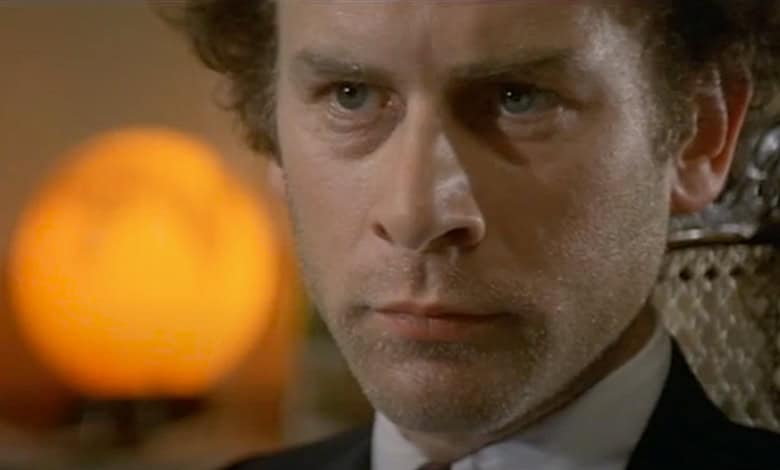
Nicolas Roeg’s “Bad Timing: A Sensual Obsession” (1980) is a great movie about awful people doing awful things to one another.
If “Gone Girl” (both the novel or the 2014 David Fincher film), crime documentaries or murder-themed podcasts are your thing, here’s a poisoned masterpiece to watch with your hands partially covering your eyes while you yell at the screen. It’s that kind of a movie.
You’ve been warned.
The scream of an ambulance siren and the sight of a woman being hauled away to the hospital introduces our main characters. The woman on the stretcher is Milena, played by Theresa Russell. Her concerned boyfriend who watches as the ambulance roars away is Alex, played by Art Gurfunkel (yes, that Art Garfunkel).
The police officer investigating the case is Inspector Netusil (Harvey Keitel). The more Alex confesses to the nature of his relationship with Milena, the less Netusil believes that her sudden overdose and suicide attempt are exactly what it seems.
Roeg was already a noted auteur, with his wondrous “Walkabout” (1971), the extraordinary, scary “Don’t Look Now” (1973) and the stunningly different David Bowie vehicle, “The Man Who Fell to Earth” (1976).
A key element of Roeg’s cinema is his ability with editing, as some of Roeg’s best films use editing to either skewer time or create bridges between moments that occurred long ago that linger in the memory.
The use of editing to establish the story of Alex and Milena, emphasize the escalating passion and horror in their relationship and contrast the happy and horrid memories is simply amazing. What could have been a messy, incomprehensible fusion of varying scenes and stolen moments is made into an astonishing, tour de force example of film editing at the highest level.
In addition to Tony Lawson’s master level of editing, there’s also perfect needle drops (“Who Are You” by The Who is ideally utilized), superb cinematography by Anthony B. Richmond, and a fearless, commanding turn by Russell.
The story is redundant and frequently off putting, with the outbursts and awful behavior becoming downright numbing by the third act. As in “Don’t Look Now,” Roeg explores a relationship that is functional on the outside, disintegrating on the inside and is kept alive by bedroom intimacy that serves as the only real tenderness and shared trust between the couple.
Garfunkel made this after going solo from his massive success with Simon and Garfunkel. While Garfunkel’s prior film role in “Carnal Knowledge” (1971) suggests a promising character actor, Garfunkel’s miscast leading turn here is, at best, fascinating to watch but, at worst, a major distraction.
Garfunkel’s dedication to playing such an unlikable creep can be effective, though it has the potential to kill a desire to listen to his music ever again.
I suppose I mean that as a compliment.
Friday evening viewing recommendation? On @criterionchannl, watch Nicolas Roeg’s BAD TIMING (1980)—a masterful, deeply disturbing foray into the dark world of sexual obsession. https://t.co/2LFJYOwAPP pic.twitter.com/ql52JboQEM
— Criterion Collection (@Criterion) July 12, 2024
In theory, Keitel would be ideal playing a cop on the case but he seems as out of place as Garfunkel. Interestingly, Keitel would play this exact kind of role far better a decade later in Alan Rudolph’s “Mortal Thoughts” (1991).
“Bad Timing: A Sensual Obsession” is full of arresting moments and so brilliantly assembled, it always dazzles as a technical achievement. As a melodrama, it’s an icky, discomforting film. Roeg’s “Don’t Look Now” is preferable (if also tough going for newcomers), though this one is equally powerful.
An ideal double feature would be to pair this with Roeg’s “Track 29” (1988), which also stars Russell, has an unforgettable turn by Gary Oldman and is among Roeg’s most completely bonkers and fascinating works.
Upon its initial release 40 years ago, Roeg’s film caused quite a scandal: it was originally rated X and one film critic infamously touted that it was “a sick film, made by sickos.” Years later, it went out of print, before The Criterion Collection cleaned it up and re-released it.
Roeg arguably justifies the horror show shock reveal in the final stretch by giving us a perfect and perfectly satisfying closing scene. Enduring this much human wretchedness, even when presented so stylishly, is a matter of taste.
